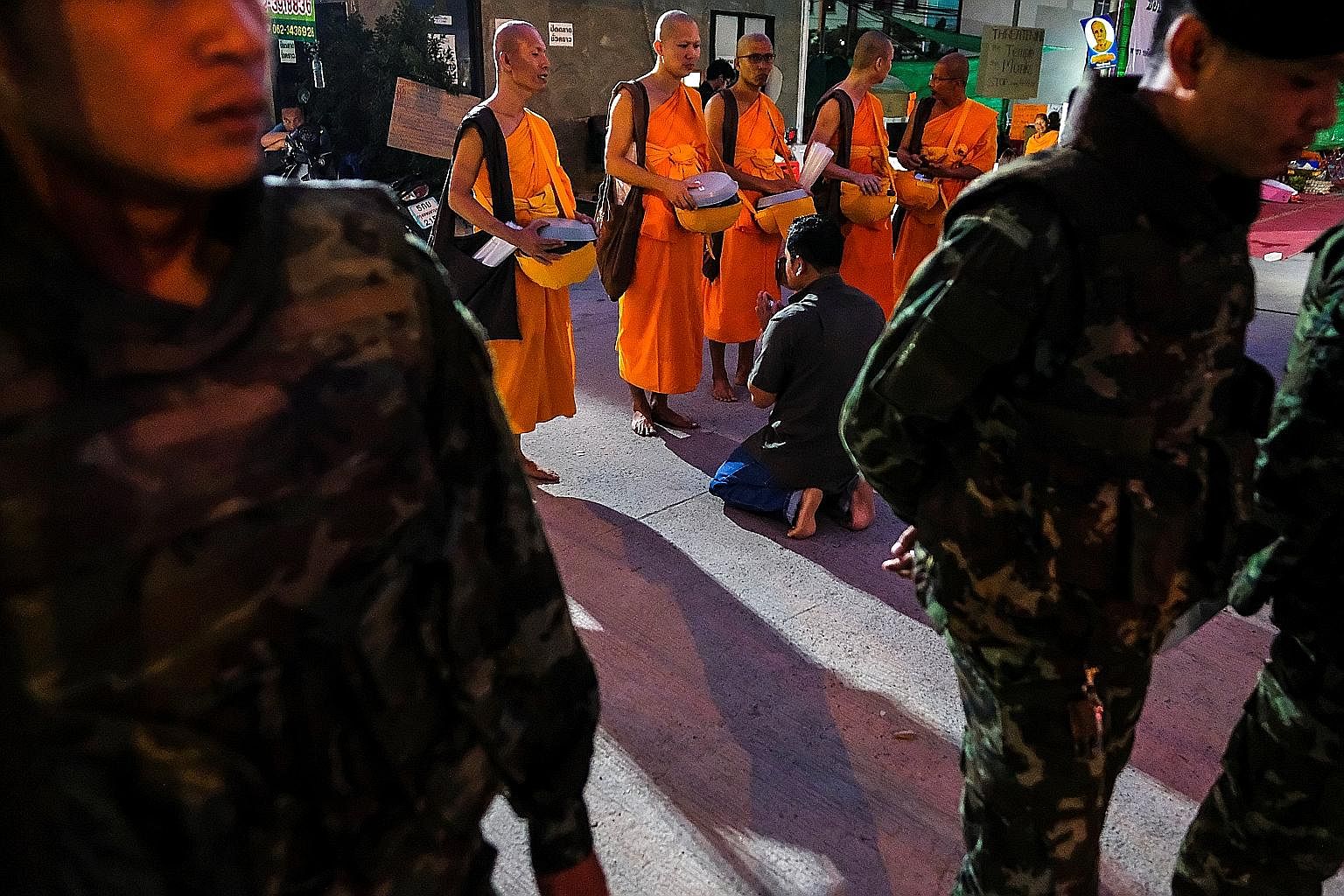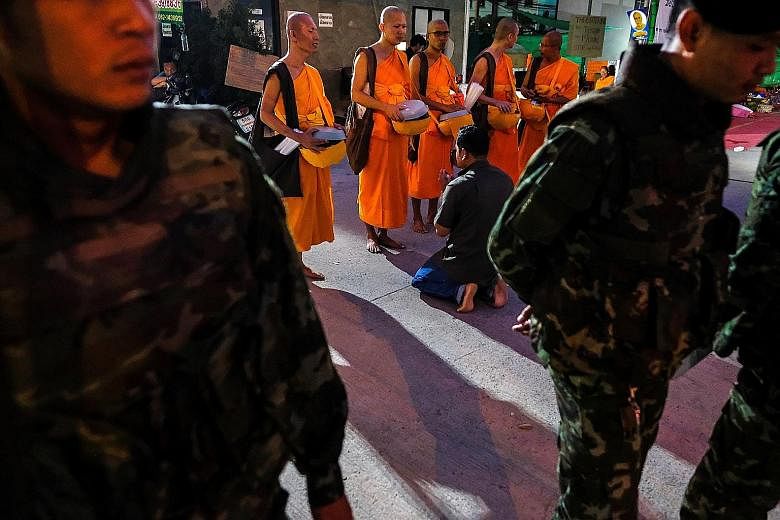Tan Hui Yee Only about 10 metres separate the two camps. At one end, policemen tasked with repelling the crowds sit shoulder to shoulder. At the other stands a barricaded tent, with a loudspeaker blaring a monologue defending the reputation of fugitive monk Phra Dhammachayo.
The battle of wills between Thailand's military government and its biggest Buddhist temple is turning out to be gruelling, surreal and potentially sinister.
The Dhammakaya temple, known for its massive religious ceremonies and its spaceship-like headquarters just outside Bangkok, has unwittingly put up the most conspicuous resistance to the junta's authority since 2014's coup.
Some 4,000 soldiers, policemen and other security officers have blockaded the temple since Feb 16 to flush out its honorary abbot, who is wanted for allegedly receiving money embezzled from a credit union, as well as being involved in the construction of religious facilities that encroached on public land. According to officials, the temple faces more than 300 separate charges for infractions ranging from obstructing police officers to illegal construction.
The 72-year-old Phra Dhammachayo, who has repeatedly defied summonses by claiming illness, has so far not been found.
Officials say their sweep of the 400ha compound - more than four times the size of Singapore's Botanic Gardens - is not complete. But masses of devotees are keeping vigil outside to support the thousands of their counterparts who have defied the authorities and camped inside the compound. They are cynical about the government's intentions and believe the state is plotting to seize control of their temple. "If we poop, it's wrong. If we pee, it's also wrong," an elderly devotee, using a colloquial Thai idiom, lamented to The Straits Times last week.

Prime Minister Prayut Chan-o-cha has refused to consider ending his use of Article 44, a catch-all clause in the military-installed interim Constitution that gives the government absolute power to issue an order or curb any act that undermines national security. Initial hopes that the stand-off could end without casualties were dashed on Saturday night when a man hanged himself from the telephone signal tower by the temple to protest against the use of Article 44.
In a chilling indication of how divisive the issue has become, some individuals even went online to goad him to speed up his suicide in the moments before his death.
General Prayut's government says it is simply enforcing the law. But it is having trouble shaping the narrative, especially when influential figures seem to indicate that there are other plans in store for Dhammakaya.
For example, Mr Paiboon Nititawan, a former senator and Constitution drafter, told Reuters news agency that "the leadership of the temple needs to change". "Someone outside the temple must be appointed to steer the temple back to the right path," he said.
Meanwhile, the temple's monks and devotees have staged a sophisticated international media campaign, calling the operation a breach of human rights and religious freedom.
In one picture circulated by a devotee, a young novice opens a cup of instant noodles in a swipe at the authorities for allegedly limiting the monks' food supply. Across the border in Myanmar, extremist monk Ashin Wirathu has led a rally in Mandalay in support of Dhammakaya.
Wary of the temple's online reach, Thai authorities cut off the temple's Internet connection, as well as cellphone signals in and around the compound, last week.
In response, the temple unfurled a huge banner from a tower on Sunday, which read, in English: "We need food."
A layer of distrust pervades the Dhammakaya camp. There is a fear of government spies and of third parties that may try to provoke a confrontation.
Yet this does not have the elements of the Waco siege, where a 1993 stand-off between a cult and United States federal agents ended with 76 people killed.
Thailand's military government, wary of stoking emotions in its Buddhist-majority population, is treading gingerly despite having dealt with dissidents more harshly.
Government spokesman Sansern Kaewkamnerd hinted that the administration was prepared for a prolonged stalemate.
"It's a sensitive issue dealing with masses of people," he told The Straits Times. "We understood from the beginning that it may take time."
But having mustered so many resources towards this high-profile target, the question is how it might engineer a climbdown should this manhunt come up empty.


